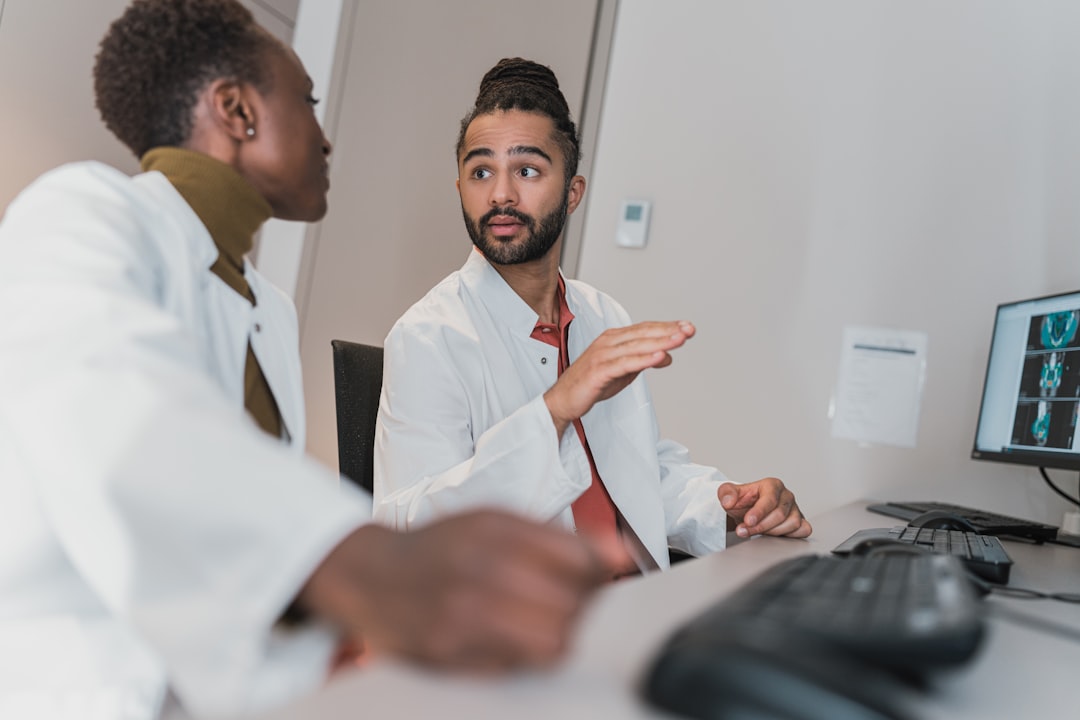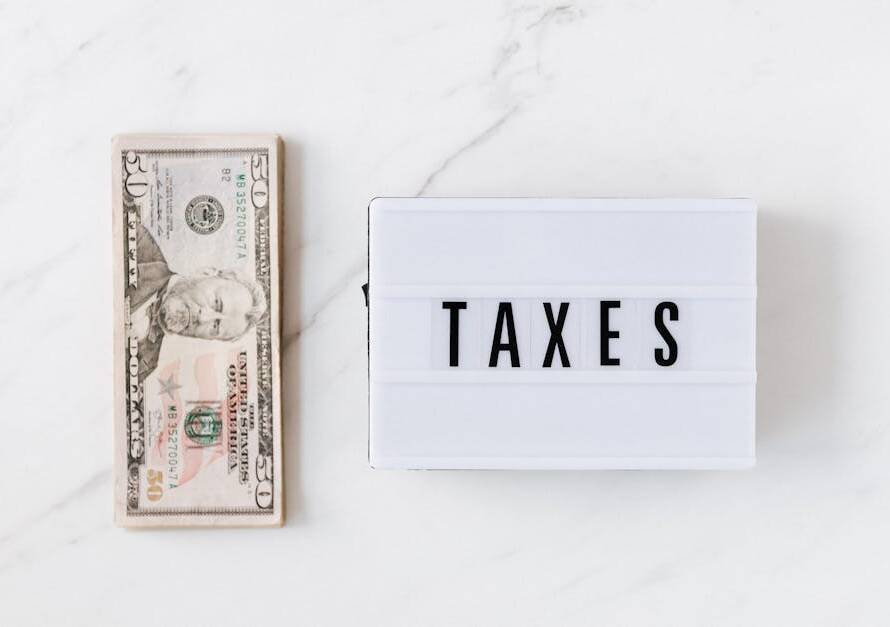Introduction
Navigating the complexities of tax regulations can be daunting for professionals in any field, but it is particularly challenging for doctors who face unique financial scenarios related to their practice. Whether you are a consultant, a GP, or a specialist, understanding how to maximise your tax deductions is crucial in reducing your tax liability and enhancing your financial health. This guide provides focused tax tips specifically tailored for doctors in the UK, aiming to help you make informed decisions about your tax situations. By identifying applicable deductions and offering strategic advice, this blog seeks to aid medical practitioners in managing their taxes efficiently.
Understanding Tax Obligations for Doctors in the UK
 Image courtesy: Unsplash
Image courtesy: Unsplash
Overview of tax responsibilities for doctors
Doctors in the UK, whether self-employed or employed, face a complex set of tax responsibilities. It’s essential to understand these obligations to manage finances effectively and avoid penalties. For employed doctors, income tax and National Insurance contributions are typically handled by employers through the PAYE (Pay As You Earn) system. However, many doctors also have additional income streams—such as private consultations, locum tenens work, or rental income—that must be declared on a Self-Assessment tax return.
Self-employed doctors, on the other hand, need to manage their entire tax calculation and payment processes. They must keep accurate records of all their income and expenses, as these figures are used to complete their Self-Assessment tax returns. The accurate documentation of expenses is crucial, as it can significantly reduce taxable income and, consequently, the amount of tax owed.
Key tax deadlines and requirements for medical professionals
Understanding key tax deadlines is critical for all medical professionals to avoid late penalties. The tax year in the UK ends on April 5th, and doctors must ensure their tax returns are filed, and any tax owed is paid by January 31st of the following year. For those with more complicated tax affairs or multiple income streams, it’s advisable to complete this task well in advance of the deadline.
Doctors also need to be aware of specific requirements that apply to them, especially in keeping detailed records of all incomes and expenses. HMRC can request to see these records up to six years after the tax year in question, emphasising the need for good record-keeping practices. Additionally, doctors participating in any tax-avoidance schemes are required to report these to HMRC under the DOTAS (Disclosure of Tax Avoidance Schemes) regulations.
Maximising Deductions for Doctors
Exploring allowable deductions for healthcare professionals
There are several expenses that doctors can claim to reduce their taxable income. Commonly allowable deductions include:
– Professional fees and subscriptions: Fees for GMC registration, BMA membership, and subscriptions to medical journals or professional bodies are deductible.
– Medical equipment and supplies: Costs incurred for medical instruments, prescription pads, and protective clothing, like gloves and masks, can be claimed.
– Continuing Professional Development (CPD): Expenses related to training courses, seminars, or conferences intended to maintain or improve professional skills are eligible.
– Travel expenses: Costs associated with traveling to different hospitals or clinics, excluding regular commuting to a fixed workplace, can be deducted.
– Home office expenses: If you use part of your home exclusively for work, a proportion of heating, electricity, Internet, and telephone expenses might be claimed.
It is important to keep all receipts or invoices as proof of these expenses in case HMRC requests evidence.
Strategies to maximise tax deductions for doctors
To ensure they are maximising deductions effectively, doctors can adopt several strategies:
– Use professional accounting services: Accountants who specialise in medical finances are familiar with industry-specific deductions and can offer advice tailored to individual circumstances.
– Stay informed about tax changes: Tax laws and allowable expenses can change, and staying updated can ensure doctors claim all applicable deductions.
– Consider incorporation: For some doctors, particularly those with high earnings from private practice, incorporating as a limited company might provide significant tax advantages.
– Regularly review finances: Doctors should review their financial records periodically to ensure they are making the most of allowable deductions. This can also help prepare them for future financial planning, such as pensions or investments.
By thoroughly understanding their tax obligations and utilising all available deductions, doctors in the UK can significantly reduce their tax liabilities and enhance their financial well-being.
Claiming Relevant Expenses
Understanding what expenses are allowable by HM Revenue and Customs (HMRC) can significantly reduce your tax bill. Doctors, like other self-employed professionals and those who own their practices, can deduct legitimate business expenses before paying tax.
Types of expenses doctors can claim for tax purposes
Many expenses incurred in the day-to-day running of a medical practice are tax-deductible. Common examples include:
– Professional fees and subscriptions: This encompasses fees for GMC registrations, and subscriptions to medical journals or organisations like the British Medical Association.
– Medical equipment and supplies: Expenses for stethoscopes, gloves, masks, and even specialized medical machinery.
– Education and training expenses: Courses and training required for professional development or to maintain your certification can be claimed as educational expenses.
– Travel and accommodation expenses: When travel is strictly for medical purposes or conference attendance.
– Home office expenses: If you use a portion of your home regularly for practice, you can claim a percentage of costs like heating, electricity, and internet services.
It’s essential to ensure that the expenses are exclusively for your practice and not personal use.
Tips for tracking and documenting expenses effectively
Effective tracking and documentation of expenses are crucial for claiming deductions accurately and confidently. Here are a few tips:
– Keep detailed records: Preserve receipts, invoices, and bank statements to support your claims.
– Use digital tools: Apps and software designed for expense tracking can simplify your records, making it easier to manage and file expenses correctly.
– Regularly update records: Update your expense log regularly—preferably daily—to avoid last-minute rushes and potential omissions or errors during tax season.
– Segregate personal and business finances: Use separate bank accounts and credit cards for your business and personal expenses to ease the document management process.
Compliance with HMRC Regulations
Complying with HMRC’s rules and guidelines is not only a legal requirement but also pivotal in maintaining the integrity of your professional practice.
Importance of complying with HMRC guidelines
Compliance ensures you pay the correct amount of tax and avoid interest and penalties. It keeps your practice running smoothly without interruptions from legal disputes or audits. More importantly, it upholds your professional reputation in the healthcare sector.
Consequences of non-compliance for doctors
Failing to comply can lead to severe consequences, including:
– Penalties and fines: These can be substantial, depending on the degree of non-compliance and the amount involved.
– Audits and investigations: These can be disruptive, time-consuming, and stress-inducing.
– Damage to reputation: Professional misconduct issues related to tax evasion can tarnish your public image and professional standing.
It’s crucial for financial survival and reputation management to adhere to tax laws and practices accurately.
How to stay updated with tax regulations and changes
Tax laws and regulations can frequently change. Staying informed helps ensure compliance and allows for adaptive strategies to maximise tax efficiency. Here are some methods to stay current:
– Regular consultations with a tax advisor or accountant who specialises in healthcare sector needs.
– Subscription to HMRC newsletters and alerts.
– Participating in seminars and workshops focusing on finance for healthcare professionals.
By taking these steps, doctors can maintain compliance, ensuring their tax-related obligations are met responsibly.
Tax-Saving Strategies for UK Doctors
 Image courtesy: Unsplash
Image courtesy: Unsplash
Investment options for tax savings
For doctors in the UK, strategically investing can notably aid in reducing taxable income and improving financial health. A key vehicle for this is the Individual Savings Account (ISA). ISAs offer a tax-free way to save or invest, with no tax on interest, dividends, or capital gains. Each financial year, doctors have a limit they can invest in ISAs, which for the 2022/2023 tax year stands at £20,000.
Additionally, investing in venture capital trusts (VCTs) or enterprise investment schemes (EIS) can also serve as advantageous tax-saving strategies. These investments not only encourage investment in small and fledgling businesses but also offer significant tax reliefs. Specifically, VCT investments provide up to 30% tax relief on investments up to £200,000 per tax year, if the shares are held for at least five years. Similarly, EIS offers 30% tax relief and can be especially beneficial because it allows for deferral of capital gains from other investments, contributing further to potential tax savings.
Pension contributions and tax benefits for medical practitioners
Contributing to a pension scheme remains one of the most efficient ways for doctors to prepare for retirement while also maximising tax benefits. In the UK, pension contributions are free from both income tax and capital gains tax. The annual allowance for pension contributions is capped at £40,000 for most people, but it’s important for doctors to be aware that this limit can be lower if their income is particularly high, under the tapered annual allowance rules.
Additionally, unused annual allowances from the previous three tax years can be carried forward, which can significantly increase the amount one can contribute tax-efficiently. This is particularly relevant for doctors who might have variable incomes, as they can increase their pension contributions in more profitable years. Moreover, the lifetime allowance for pensions, which is the total amount one can hold in pension savings without triggering an excess charge, is also crucial to monitor and stands at £1,073,100 for the 2022/2023 tax year. This complex array of benefits underscores the need for careful planning and often consultation with a financial advisor to ensure optimal tax-efficient retirement planning.
Conclusion: Implementing Tax Tips for Doctors in the UK
Understanding and applying these tax tips effectively can have a significant positive impact on your financial health as a medical practitioner in the UK. Prioritise staying informed about HMRC regulations and consider the following steps to ensure you are maximising your tax deductions and savings:
– Regularly review your expenses and ensure they are well-documented.
– Consult with a tax professional who specialises in healthcare to get tailored advice.
– Keep abreast of changes in tax laws that may affect the medical profession.
By taking proactive steps and utilising the strategies outlined, you can mitigate financial stress and focus more on your critical role in healthcare. Remember, efficient tax planning is an ongoing process and requires attention throughout the year.



